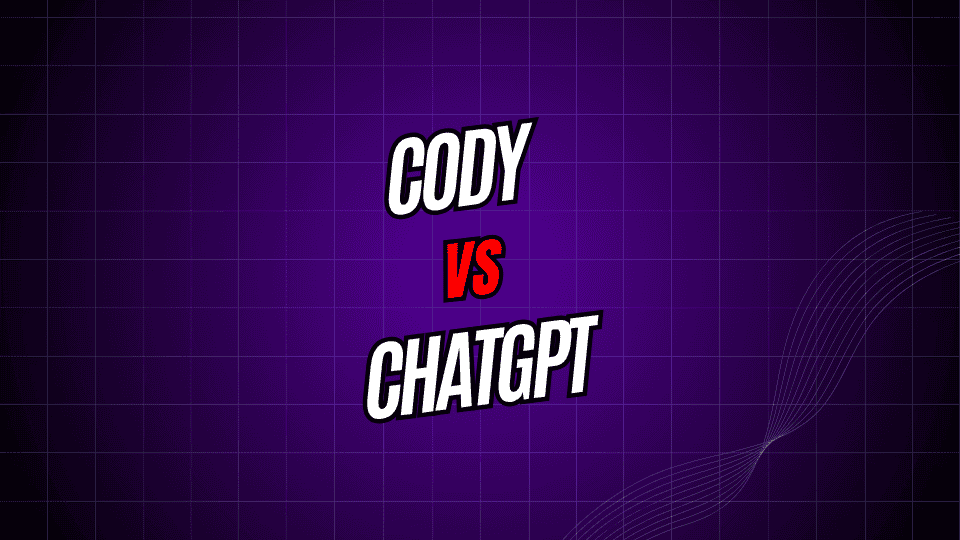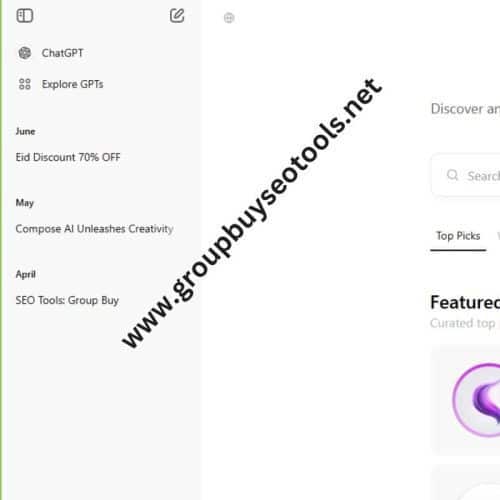
Artificial intelligence now touches almost every part of our lives-from homework help to office reports-yet choosing the right tool can still feel overwhelming. Two heavyweights battling for your attention are Cody and ChatGPT. Each platform promises to clear distractions and supercharge your day, but they were born to tackle different challenges.
Because the assistant you pick can either save hours of work or drain them, a careful look at Cody and ChatGPT matters. In the sections that follow, we weigh their abilities, ease of setup, cost, and the way people actually use them. By the end, you will have a clear picture of which one will make your routine smoother and your goals more attainable.
What is Cody?
Cody is a focused AI buddy born for software teams. Created by Sourcegraph, it digs deep into code repositories, guiding developers through writing, debugging, and updating apps in record time.
Key Features of Cody
- Code Understanding: Cody reads entire codebases, grasping how files, classes, and functions connect. For sprawling projects with thousands of lines, this insight can prevent hours of hunting and guessing.
- Intelligent Code Completion: Rather than spitting out general snippets, Cody serves up suggestions tailored to your current context, saving you the usual tweaking.
- Code Explanation: Stuck on a tangled function? Cody can break it down in plain English so new hires or distant teammates quickly get the picture.
Security-Focused: Built with enterprise-grade security, this platform safeguards your code and data, so you can trust it for sensitive business apps.
What is ChatGPT?
ChatGPT is a friendly conversational AI made by OpenAI. Whether you need help writing an email or solving a tricky math problem, millions of people turn to it every day.
Key Features of ChatGPT
- Versatility: From essays and research to creative stories and quick fixes, ChatGPT lends a hand in almost any topic.
- Conversational Interface: Its chat window feels like texting, letting you tweak questions and get clearer answers step by step.
- Multiple Models: Choose between GPT-3.5 and GPT-4, each tuned for different speeds and levels of detail.
- Plugin Ecosystem: Upgrade to ChatGPT Plus and add web browsing, data charts, or tools from other apps through handy plugins.
Feature Comparison
Programming and Development
When coding is the goal, Cody stands out. It reads whole codebases and offers suggestions that fit right into a developers workflow, even on big, tangled projects. ChatGPT can still answer programming questions and whip up common code snippets, but it doesnt yet see the big picture of any single codebase like Cody does.
Content Creation and Writing
ChatGPT is a champ at whipping up all kinds of content-from casual blog posts and friendly emails to punchy marketing lines. Because it has learned from a mix of styles, it can quickly switch voices and formats to fit what you need.
Cody, on the other hand, zeroes in on code docs and technical notes. While it can explain how a particular function works, you won’t catch it drafting a lifestyle article.
Research and Analysis
Thanks to its wide-ranging database, ChatGPT is handy for research, answering random questions and summing up tricky subjects in plain language.
Codys research lean towards-the code world. It scans your project fast, pulling up the right functions, libraries, and patterns when you ask.
Team Collaboration
Cody really shines in busy dev teams. Its clear code explanations and inline comments get new hires up to speed without pulling senior staff away.
ChatGPT helps individuals knock out tasks quickly, but it misses the shared code-context features that make Cody a go-to in development circles.
Pricing Snapshot
Cody offers a free tier with limited tokens to test the waters. Individual bills start at a wallet-friendly monthly rate, while larger teams can choose enterprise packages tailored to a bigger codebase. Prices match its strong focus on developer tools.
ChatGPT Pricing
ChatGPT still offers a totally free version that lets you play around with GPT-3.5. For $20 a month, ChatGPT Plus bumps you up to GPT-4, speeds up replies, and lets you use handy plugins. Bigger teams can ask about Enterprise plans for extra features and faster priority access.
Use Cases: When to Choose Each Tool
Pick Cody When:
- Youre a developer deep in a big, messy code-base.
- Your team needs clear, up-to-date docs and solid code understanding.
- Projects handle sensitive data and must follow strict security rules.
- Context-aware hints and step-by-step explanations matter.
- New coders need quick onboarding to existing systems.
Use ChatGPT When:
- You want a friendly, all-purpose assistant for tons of tasks.
- Writing posts, articles, or scripts is at the top of your list.
- Research questions or everyday problem-solving pop up often.
- Brainstorming ideas is better in a give-and-take chat.
- Help outside code- like marketing, design, or trivia-is useful.
Performance and Accuracy
In their own lanes, both tools shine. Codys focus on a specific code-repo gives it razor-sharp accuracy for dev-hurdles. Meanwhile, ChatGPT rarely flops; it might not be the best at one thing, but it covers a huge number of questions reliably.
Speed is similar across the board, yet Plus subscribers usually coast through peak hours with noticeably quicker replies.
Integration and Workflow
Cody slips straight into popular code editors and version-control setups, so it feels like part of the dev routine from day one. That easy plug-in lets teams spend less time learning the tool and more time shipping features.
ChatGPT is mostly web-based but also offers a quick API for custom hooks. It wont nest as deeply into a single IDE, yet that same openness lets teams design fun, new workflows that mix chat, code, and docs as they see fit.
Security and Privacy
Cody comes locked with enterprise-grade security built around code and IP, which suits companies with tight gatekeepers and sensitive projects.
ChatGPT uses standard privacy layers youd expect from a major cloud service, but its broad, consumer-first design might still raise flags in some code-heavy shops.
Making the Right Choice for Your Needs
Pick Cody if your day job is shipping code; its tailored features, deep context, and team buzz will save hours of debug talk. Developers chasing clean inline docs or joint pull-request edits will quickly feel the impact.
Grab ChatGPT for a trusty, Swiss-army AI. Writers, students, marketers, and even engineers doing quick research appreciate its knack for switching lenses on the fly.
When you choose between Cody and ChatGPT, think about your budget, the size of your team, and how the tool will fit into your daily tasks. Both services have free plans, so you can play around with them and see what clicks before spending money.
The Future of AI-Assisted Work
Cody and ChatGPT show two sides of the same AI story: one built for focused jobs and the other aimed at general chatting. As tech moves forward, we will likely see smarter features that slide into our current tools with almost no effort.
Each app tackles a separate piece of the work puzzle for its users, and picking the right one depends on your style, needs, and where you plan to be down the road.
Instead of thinking you must settle on just one, explore ways they can work side by side in your setup. Lots of people get a kick out of using both to handle different parts of a project.








